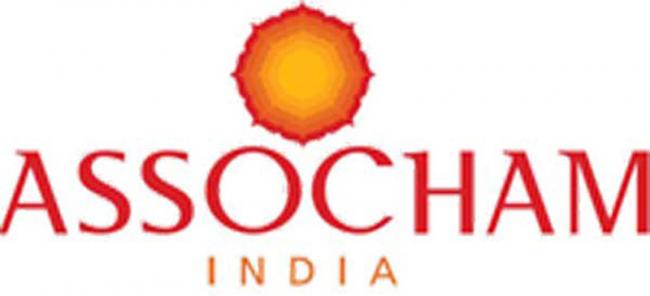
Banks have to take haircuts of 40-60% to achieve moderate degree of safety: Study
Mumbai, Sept 12 (IBNS): With stressed debt of over Rs 50,000 crore under independent credit evaluation (ICE) framework, banks have to take a haircut in the range of 40-60 per cent to achieve a rating of RP4 (moderate degree of safety regarding timely servicing of financial obligations), noted a recent ASSOCHAM-Crisil joint study.
“The average sustainable debt for these assets is around 50 per cent,” said the study titled, ‘Code of hope,’ jointly conducted by The Associated Chambers of Commerce and Industry of India (ASSOCHAM) along with global analytical company Crisil.
Terming the Insolvency and Bankruptcy Code, 2016 (IBC) as a game changing reform for India’s economy, the study noted that effective implementation of IBC will help in preserving the value of asset and faster resolution, which also means that asset reconstruction companies (ARCs) would be able to churn capital faster and enhance returns.
The National Company Law Tribunal (NCLT) had approved resolution plan for 32 stressed assets under the Corporate Insolvency Resolution Process (CIRP) as on June 30, 2018, with resolution to the tune of Rs 50,000 crore against total claims of Rs 89,400 crore admitted by financial and operational creditors.
Noting that the average resolution timeline for these 32 accounts were 260 days vis-à-vis the stipulated 270 days, the ASSOCHAM-Crisil study said, “That’s a huge improvement on the recovery time of 3.5-4 years taken by asset reconstruction companies, and 4.3 years as per the World Bank’s ‘Doing Business 2018’ report.”
It further said that an improvement in the recovery rate and reduction in timeline for resolution will increase investor confidence in Indian corporate bond market. “With greater certainty of outcome and faster resolution under IBC, the interest of both domestic and foreign investors in lower-rated paper is expected to increase over time.”
Besides, India’s ease of doing business ranking can further improve and for stakeholders, there is clarity on getting their share of dues.
The study also noted that IBC is expected to promote a market for unsecured financing. “That is because the distribution waterfall of recoveries following liquidation gives unsecured financial creditors (apart from all secured creditors) precedence over government dues.”
Amid other benefits, the ASSOCHAM-Crisil paper said that IBC will help promote entrepreneurship and increase the role of professionals from various fields like law, accountancy and finance as an insolvent firm could be wound up on a fast-track basis within 90 days thereby protecting the creditor interest and reallocating the capital to efficient businesses.
Even employees and workmen will benefit as they too can initiate insolvency proceedings for unpaid dues and have greater lien in distribution of liquidation proceeds.
The report however noted that challenges persist at multiple levels in terms of effective implementation of IBC - infrastructure issues, adherence to resolution timelines, liquidation impact, criticality of the role of the Committee of Creditors (CoC), and limited development of secondary market.
“These would need to be addressed systematically and soon for successful implementation of the IBC over the medium term and achieve the intended outcomes,” further said the ASSOCHAM-Crisil study.
Support Our Journalism
We cannot do without you.. your contribution supports unbiased journalism
IBNS is not driven by any ism- not wokeism, not racism, not skewed secularism, not hyper right-wing or left liberal ideals, nor by any hardline religious beliefs or hyper nationalism. We want to serve you good old objective news, as they are. We do not judge or preach. We let people decide for themselves. We only try to present factual and well-sourced news.







